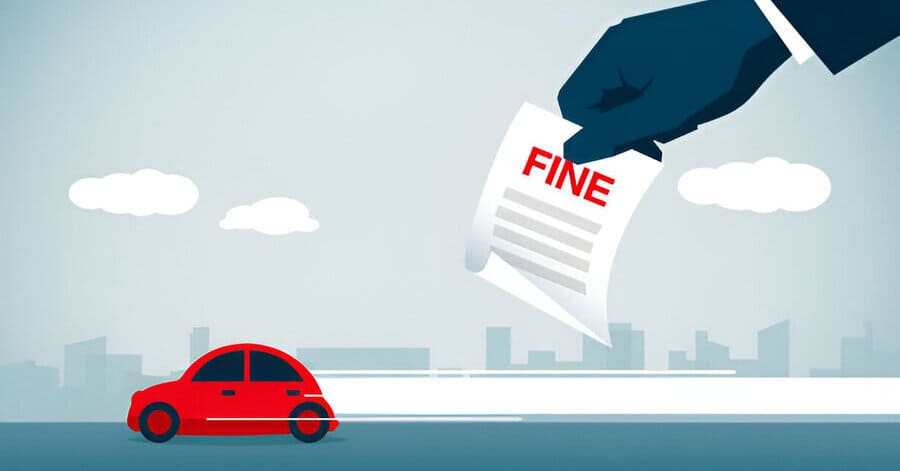
Receiving a traffic ticket in Ohio can feel overwhelming, especially when you know the potential consequences extend far beyond a simple fine. With Ohio’s strict traffic enforcement and point-based penalty system, understanding how to fight a moving violation ticket in Ohio can save you hundreds of dollars, protect your driving record, and preserve your ability to drive legally.
This comprehensive guide walks you through everything you need to know about challenging traffic violations in Ohio, from understanding the types of violations to working with an experienced Columbus DUI lawyer to protect your rights.
Understanding Ohio’s Traffic Violation System
Ohio operates under a comprehensive traffic enforcement system that categorizes violations based on severity and assigns point values that can significantly impact your driving privileges. The state’s approach to traffic violations reflects its commitment to road safety, but it also means that even minor infractions can have lasting consequences.
The Ohio Bureau of Motor Vehicles (BMV) tracks all traffic violations on your driving record, and these records are accessible to insurance companies, employers, and law enforcement. This system makes fighting unjust or incorrectly issued tickets crucial for protecting your long-term interests.
Common Types of Moving Violations in Ohio
Understanding the different types of moving violations can help you better prepare for your defense strategy with an Ohio traffic violation lawyer.
Speeding Violations
Speeding is the most common moving violation in Ohio, but not all speeding tickets are created equal. The penalties vary based on how much you exceeded the speed limit:
Minor Speeding (1-10 mph over): Typically results in 2 points and fines ranging from $150-$200
Moderate Speeding (11-20 mph over): Carries 2 points and higher fines up to $300
Serious Speeding (21+ mph over): Results in 4 points and fines exceeding $400
Failure to Yield Violations
These violations occur when drivers don’t give right-of-way to other vehicles, pedestrians, or emergency vehicles. Common scenarios include:
- Failing to yield at intersections
- Not yielding to pedestrians in crosswalks
- Blocking emergency vehicles
- Improper merging on highways
Traffic Signal and Sign Violations
Running red lights, rolling through stop signs, and ignoring traffic control devices result in serious penalties. These violations typically carry 4 points and can lead to fines exceeding $500.
Aggressive Driving and Road Rage
Ohio takes aggressive driving seriously, with penalties including:
- Tailgating (following too closely)
- Improper lane changes
- Excessive speeding in traffic
- Verbal or physical confrontations while driving
DUI/OVI Violations
Driving under the influence (OVI in Ohio) represents the most serious moving violation, carrying 6 points, substantial fines, license suspension, and potential jail time. These cases require immediate attention from a qualified Columbus DUI lawyer.
How Points Affect Your Driving Record in Ohio
Ohio’s point system serves as a progressive penalty structure designed to identify and penalize repeat offenders. Understanding how this system works is crucial for every Ohio driver.
Point Accumulation Timeline
The Ohio BMV tracks points over a two-year rolling period. This means that points from violations occurring more than two years ago don’t count toward your current total. However, the violations themselves remain on your driving record for longer periods.
Consequences of Point Accumulation
6-11 Points: You’ll receive a warning letter from the BMV reminding you of the consequences of further violations.
12+ Points in Two Years: Your license faces automatic suspension for six months. This suspension cannot be appealed and takes effect regardless of your personal circumstances.
Multiple Suspensions: Drivers with repeated suspensions face increasingly severe penalties, including longer suspension periods and mandatory driver intervention programs.
Impact on Insurance Rates
Insurance companies regularly review driving records and adjust premiums based on violation history. Even minor violations can increase your insurance costs by 20-40%, while serious violations like DUI can double or triple your rates.
Employment Consequences
Many employers, particularly those requiring driving as part of the job, conduct regular driving record checks. Accumulating points can jeopardize your employment or limit future job opportunities.
Steps to Take Immediately After Receiving a Ticket
Your actions immediately after receiving a traffic ticket can significantly impact your ability to successfully challenge it. Follow these critical steps to protect your interests.
Don’t Admit Guilt
During the traffic stop, be polite and cooperative, but avoid statements that could be interpreted as admissions of guilt. Phrases like “I’m sorry” or “I didn’t realize” can be used against you in court.
Document Everything
Take detailed notes about the circumstances surrounding your ticket:
- Weather conditions
- Traffic patterns
- Road conditions
- Any relevant signage or construction
- Officer behavior and statements
- Equipment used (radar gun, pacing, etc.)
Preserve Evidence
If possible, return to the scene and photograph relevant conditions like:
- Speed limit signs
- Road markings
- Traffic control devices
- Sight lines and visibility issues
- Any construction or temporary conditions
Review the Ticket Carefully
Check your citation for errors in:
- Personal information (name, address, license number)
- Vehicle information (make, model, license plate)
- Location details
- Date and time
- Specific violation cited
Even minor errors can sometimes provide grounds for dismissal.
Understand Your Options
You typically have three options when receiving a traffic ticket:
- Pay the fine (pleading guilty)
- Request a court hearing to fight the ticket
- Plead no contest (similar to guilty but may have different implications)
Contact Legal Representation
Consider consulting with an Ohio traffic violation lawyer before making any decisions. Many attorneys offer free consultations and can advise you on the strength of your case.
Benefits of Hiring a DUI Lawyer in Ohio
While you have the right to represent yourself in traffic court, working with an experienced Columbus DUI lawyer provides significant advantages that often outweigh the cost of legal representation.
Expert Knowledge of Ohio Traffic Laws
Traffic laws are complex and constantly evolving. Professional attorneys stay current with:
- Recent changes in traffic statutes
- Local court procedures and preferences
- Successful defense strategies
- Prosecution tactics and weaknesses
Court Experience and Relationships
Experienced attorneys have established relationships with prosecutors and judges, which can benefit your case through:
- Informal negotiations for reduced charges
- Understanding of court scheduling and procedures
- Knowledge of individual judge preferences and tendencies
Technical Expertise
Many traffic violations involve technical evidence that requires expertise to challenge:
- Radar and laser gun calibration records
- Police dashboard camera footage
- Traffic signal timing and maintenance records
- Accident reconstruction analysis
Negotiation Skills
Skilled attorneys can often negotiate outcomes that aren’t available to self-represented defendants:
- Charge reductions to non-moving violations
- Plea agreements that minimize points
- Alternative penalties like traffic school
- Deferred disposition arrangements
Cost-Benefit Analysis
Consider the long-term costs of accepting a traffic violation:
- Increased insurance premiums over several years
- Potential license suspension if you’re approaching 12 points
- Professional consequences for commercial drivers
- Employment implications for jobs requiring clean driving records
In many cases, attorney fees are offset by the money saved on insurance increases and other consequences.
Building a Strong Defense Strategy
Successfully fighting a moving violation requires a comprehensive defense strategy tailored to your specific circumstances and the type of violation you’re facing.
Challenging the Traffic Stop
The legality of the initial traffic stop forms the foundation of many successful defenses. Police officers must have reasonable suspicion of a violation to justify stopping your vehicle. Common challenges include:
Lack of Reasonable Suspicion: If the officer cannot articulate specific facts justifying the stop, any resulting citation may be invalid.
Improper Stop Procedures: Officers must follow specific protocols when conducting traffic stops, including proper positioning and safety measures.
Constitutional Violations: Any violation of your constitutional rights during the stop can lead to dismissal of charges.
Questioning Evidence Quality
Modern traffic enforcement relies heavily on technology, but this equipment isn’t infallible:
Radar/Laser Gun Issues: These devices require regular calibration and proper operation. Maintenance records and officer training certificates can be crucial evidence.
Dashboard Camera Footage: Video evidence can support your defense or reveal inconsistencies in the officer’s testimony.
Weather and Visibility Conditions: Poor conditions can affect both equipment accuracy and officer observations.
Witness Testimony
Passenger testimony or independent witnesses can provide valuable support for your defense. Their observations about:
- Your actual speed or driving behavior
- Road conditions and visibility
- Officer conduct during the stop
- Circumstances leading to the alleged violation
Expert Testimony
In complex cases, expert witnesses can provide crucial testimony about:
- Traffic engineering and road design
- Equipment calibration and operation
- Accident reconstruction
- Driver behavior analysis
What to Expect in Ohio Traffic Court
Understanding the court process helps you prepare effectively and increases your chances of success when fighting a moving violation ticket in Ohio.
Pre-Trial Procedures
Arraignment: Your first court appearance where you enter a plea of guilty, not guilty, or no contest.
Discovery: The process of obtaining evidence from the prosecution, including officer notes, calibration records, and any video footage.
Pre-Trial Motions: Legal requests to the court, such as motions to suppress evidence or dismiss charges based on procedural violations.
Trial Process
Opening Statements: Both sides present an overview of their case to the judge.
Prosecution Case: The state presents evidence, typically starting with officer testimony.
Defense Case: You and your attorney present evidence and witnesses supporting your innocence.
Cross-Examination: Each side can question the other’s witnesses to challenge their testimony.
Closing Arguments: Final opportunity to persuade the judge of your position.
Possible Outcomes
Dismissal: Charges are dropped, usually due to insufficient evidence or procedural errors.
Not Guilty: The court finds you innocent of the alleged violation.
Guilty with Reduced Charges: A negotiated outcome that minimizes penalties while accepting some responsibility.
Guilty as Charged: The court finds you committed the violation as alleged.
Tips for Avoiding Future Traffic Violations
Prevention remains the best strategy for avoiding the stress and expense of fighting traffic tickets. Implementing safe driving practices protects you from violations while keeping Ohio’s roads safer for everyone.
Speed Management Strategies
Use Technology Wisely: Modern vehicles often include speed limit displays and cruise control features that help maintain legal speeds.
Plan Extra Time: Rushing leads to speeding and aggressive driving behaviors that increase violation risk.
Understand Speed Limits: Pay attention to posted limits, especially in construction zones and school areas where penalties are enhanced.
Intersection Safety
Complete Stops: Make full stops at stop signs, not “rolling stops” that can result in citations.
Yellow Light Judgment: Don’t try to “beat” yellow lights; instead, prepare to stop safely when you see them change.
Right-of-Way Rules: Review and follow Ohio’s right-of-way laws to avoid failure-to-yield violations.
Defensive Driving Practices
Maintain Safe Following Distances: The three-second rule helps prevent tailgating violations and reduces accident risk.
Signal Properly: Use turn signals well in advance of lane changes and turns.
Stay Alert: Avoid distractions like cell phones, eating, or other activities that divert attention from driving.
Vehicle Maintenance
Regular Inspections: Ensure lights, brakes, and other safety equipment function properly to avoid equipment violations.
License and Registration: Keep all documentation current and readily accessible.
Insurance Coverage: Maintain required insurance coverage to avoid additional penalties if stopped.
Understanding Ohio’s Enhanced Penalties
Certain circumstances can dramatically increase the consequences of traffic violations, making it even more important to fight unjust tickets with help from an Ohio traffic violation lawyer.
Construction Zone Violations
Ohio doubles fines for most moving violations committed in active construction zones. What might normally be a $150 speeding ticket becomes a $300 penalty, plus the associated points remain the same.
School Zone Violations
Enhanced penalties apply in school zones during designated hours, typically when children are present or during posted times.
Commercial Driver Considerations
Commercial drivers face stricter standards and more severe consequences for traffic violations:
- Lower BAC limits for DUI/OVI charges
- Potential loss of commercial driving privileges
- Employer notification requirements
- Federal DOT violations that can affect employment across state lines
Taking Action to Protect Your Driving Record
Don’t let a traffic violation derail your driving privileges or cost you thousands in increased insurance premiums. Understanding how to fight a moving violation ticket in Ohio empowers you to protect your rights and minimize the long-term consequences of traffic citations.
The first step in any successful defense strategy involves consulting with an experienced Columbus DUI lawyer who understands Ohio’s traffic laws and court procedures. Many attorneys offer free initial consultations where they can evaluate your case and explain your options.
Remember that paying a ticket means pleading guilty to the offense, which places points on your license and creates a permanent record that affects insurance rates and employment opportunities. Even if you believe fighting the ticket might be unsuccessful, consulting with legal counsel ensures you understand all available options.
Time is crucial in traffic violation cases. Most tickets require a response within a specific timeframe, and missing these deadlines can result in automatic guilty findings and additional penalties. Don’t delay in seeking legal advice and beginning your defense preparation.
Whether you’re facing a minor speeding ticket or serious charges like DUI/OVI, professional legal representation can make the difference between a minor inconvenience and life-changing consequences. Contact an experienced Ohio traffic violation lawyer today to discuss your case and learn how to protect your driving record and your future.




